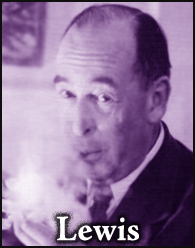The Cimmerian V3n2 — February 2006

Edited by Leo Grin | Illustrated by Dalmatius
40 pages
This issue was printed in two editions. The deluxe edition, numbered 1–75, uses a black linen cover with foil-stamped gold text. The limited edition, numbered 76–225, uses a gold cover with solid black text.
DELUXE COPIES DESTROYED: 15
LIMITED COPIES DESTROYED: 62
Features full coverage of the January 21, 2006 centennial celebration in Fort Worth, Texas, an essay on Howard creating a horror milieu in reaction to Lovecraft, more coverage of the December 27, 2005 Cross Plains fire, a historical vignette about a Howard lawsuit by Glenn Lord, poetry by Darrell Schweitzer, a jam-packed Lion’s Den, and more.
EXCERPTS:
“I wish you well as you try to bring your women to Robert E. Howard,” Barbara concluded. “There is a place for them there.” After which Ginny Hoskins of Cross Plains stepped to the microphone and added that Mrs. Baum missed one important point about introducing Howard’s writing to women — “The guys in his stories are really hunky!”
“No more beer over there!” Herman cracked.
— from “Birthday Bash at The Torch” by Rick Kelsey
Over the years since that marvelous Thriller episode, critical acceptance for Howard’s original tale has been growing. In the last few decades it has been anthologized many times, and Stephen King has called it “one of the finest horror stories of our century.” Even the Lovecraftian subtext is beginning to be explored. Ramsey Campbell, in his introduction to Scott Hampton’s graphic rendering of Howard’s tale, touches lightly on this idea, writing that it may “have been an attempt by (Howard) to outdo Lovecraft for horror,” and that Sheriff Buckner “can be seen as one of Howard’s idealized portraits of himself.” Most interesting to me, he adds that it’s a story where “one may sense Howard’s triumph.”
— from “Lovecraft’s Southern Vacation” by Brian Leno
Dozens of vehicles crammed with hastily grabbed possessions had just flat stopped along the side of the road. Everybody was staring silently back towards town as the sky turned alternately blood red and pitch black. Wind was blowing the colors around so much that they felt the entire town must have been on fire, causing one to remark that it looked like the end of the world. Not knowing whether any of them had a home to return to, they simply clung to each other and to their faith that God would see them through the nightmare.
— from “The Fire That Spread Around the World” by Arlene Stephenson
L. Sprague de Camp badly wanted to get the rights to Conan back from Lancer before the Waldman deal could go through. As it stood, he got fairly little from Lancer, since at the time of the original contract in the 1960s no one had known how well the series would do. But if he could somehow steal the rights from under Playmore’s nose and negotiate with another publisher, touting to them Conan’s previous success in the marketplace, then he could get a much larger advance for himself.
— from “A Vulture Comes Up Snake Eyes” by Glenn Lord
I do not believe that a time comes when we have to put away the things of youth, but a time does come when it behooves us to see them for what they are. 1967’s You Only Live Twice was my first James Bond film, and my favorite for many years. Blofeld’s bridge over the piranha pool that collapsed beneath his underachieving minions! S.P.E.C.T.R.E.’s hollow volcano headquarters! The vagina dentata interceptor rocket, severing the lifeline of a luckless extravehicular astronaut! Bevies of almond-eyed Nipponese lovelies in bras and panties! It was not until much later that I admitted to myself that all of the Pop Art bread and circuses had almost nothing to do with Ian Fleming and his death-draped, black-bordered novel, with Blofeld’s descent into Führerbunker-style madness and Bond’s pursuit of revenge to cauterize the walking wound he’d become. So even if the wide-eyed Gary left milk and cookies out for Spraguey Claus on Christmas Eve, even if the young Romeo’s pet paperbacks waited faithfully by the front door all day long when he traipsed off to school each morning, it may be time to recognize that the Lancers were flawed in premise and practice, and that Karl Edward Wagner and his proto-purist approach should be everlastingly honored in and by Howard studies.
— Steve Tompkins, writing in The Lion’s Den




